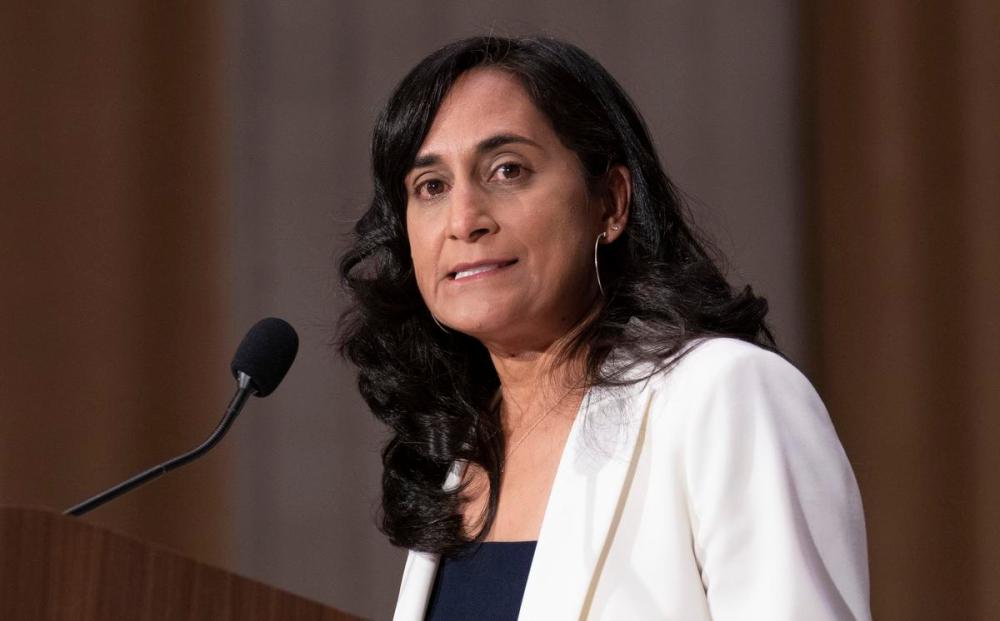Armed forces’ officials acknowledge lack of confidence in military justice system
Advertisement
Read this article for free:
or
Already have an account? Log in here »
To continue reading, please subscribe:
Monthly Digital Subscription
$0 for the first 4 weeks*
- Enjoy unlimited reading on winnipegfreepress.com
- Read the E-Edition, our digital replica newspaper
- Access News Break, our award-winning app
- Play interactive puzzles
*No charge for 4 weeks then price increases to the regular rate of $19.00 plus GST every four weeks. Offer available to new and qualified returning subscribers only. Cancel any time.
Monthly Digital Subscription
$4.75/week*
- Enjoy unlimited reading on winnipegfreepress.com
- Read the E-Edition, our digital replica newspaper
- Access News Break, our award-winning app
- Play interactive puzzles
*Billed as $19 plus GST every four weeks. Cancel any time.
To continue reading, please subscribe:
Add Free Press access to your Brandon Sun subscription for only an additional
$1 for the first 4 weeks*
*Your next subscription payment will increase by $1.00 and you will be charged $16.99 plus GST for four weeks. After four weeks, your payment will increase to $23.99 plus GST every four weeks.
Read unlimited articles for free today:
or
Already have an account? Log in here »
Hey there, time traveller!
This article was published 05/11/2021 (1497 days ago), so information in it may no longer be current.
Acknowledging a lack of public confidence in the military justice system, the heads of the armed forces’ police and prosecutions provided some details Friday on this week’s major decision to send all sexual misconduct cases to the civilian system.
However, when that shift will happen remains to be seen.
“We … believe that greater emphasis on civilian investigations and prosecutions for sexual assault and other criminal offences of a sexual nature under the Criminal Code is now appropriate and necessary,” said a statement released Friday afternoon from Provost Marshal Brig.-Gen. Simon Trudeau, who commands the military police, and Col. Dylan Kerr, the director of military prosecutions.

“Canadians can be assured that the military justice system stands ready to act where the civilian criminal justice system is unable or declines to exercise its jurisdiction in these matters.”
Friday’s statement follows an announcement Thursday by newly-appointed Defence Minister Anita Anand, who said she had accepted independent recommendations to move military sexual misconduct cases into the civilian system given the growing sexual misconduct crisis in the armed forces.
Those interim recommendations came from retired Supreme Court justice Louise Arbour, who is currently undertaking an external review of military sexual misconduct and who is expected to deliver her final report next spring.
The Canadian military has been rocked by a sexual misconduct crisis this year, with a number of current and former senior leaders under investigation or facing charges.
Military police will contact victims in the coming days to explain the transition process, the statement said.
“We all recognize that allegations of sexual misconduct against senior leaders have had a detrimental effect on the credibility of the CAF and the morale of its members,” Friday’s statement said.
The provost marshal’s office said it has started to work on policy directives to be issued to military police officers in order “to give precedence to the exercise of civilian jurisdiction over the investigation of sexual assault” and other criminal sexual offences.
“We will initiate a conversation with our civilian counterparts to develop workable processes and effective practices with them,” the statement said.
Trudeau will also “leverage” his role as a member of the Canadian Association of Chiefs of Police to communicate the new policy “and ensure a smooth transition,” the statement said.
“Military police commanders will supplement these efforts at their level to find the best ways to interact with local law enforcement agencies,” the statement said.
The director of military prosecutions has already started to work with civilian counterparts on “establishing a set of principles” in order for the cases to be prosecuted in the civilian system.
“We acknowledge the current crisis of public confidence in the military justice system, particularly as it relates to allegations of sexual misconduct,” Friday’s statement said.
“Although military police investigators and military prosecutors possess the professional skills, dedication and competence to investigate and prosecute criminal and disciplinary offences, we recognize that this has not been enough to build and maintain trust and confidence in the military justice system.”
In a letter sent on Oct. 20 to Anand’s embattled predecessor, Harjit Sajjan — just days before he was shuffled out of the position — Arbour said the current crisis has “led me to conclude that immediate remedial actions are necessary to start restoring trust in the (Canadian Armed Forces.)”
She recommended that sexual misconduct cases be immediately sent to the civilian system, in line with a recommendation made this year by retired Supreme Court justice Morris Fish in an independent review of the military justice system.
That transition should include cases currently under investigation by military police unless nearing completion, Arbour said.
Jacques Gallant is a Toronto-based reporter covering politics for the Star. Follow him on Twitter: @JacquesGallant

